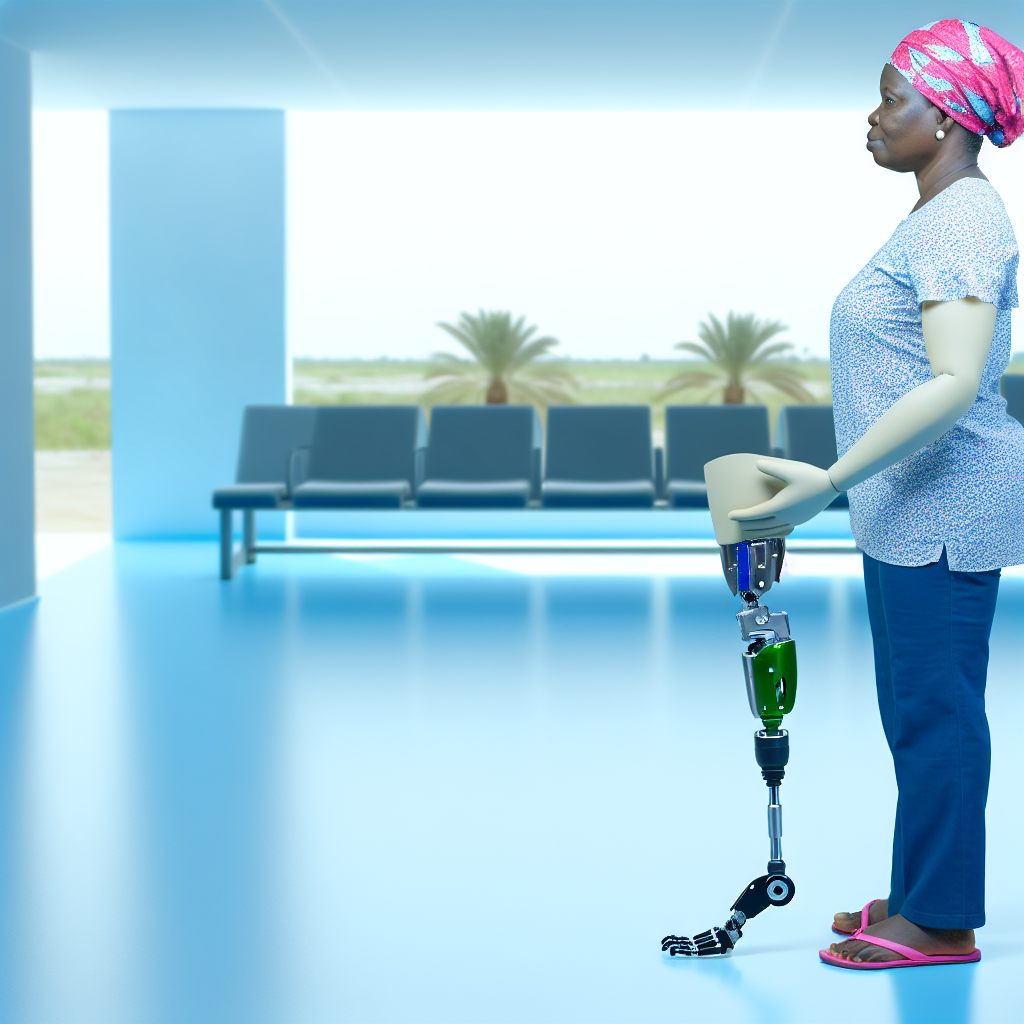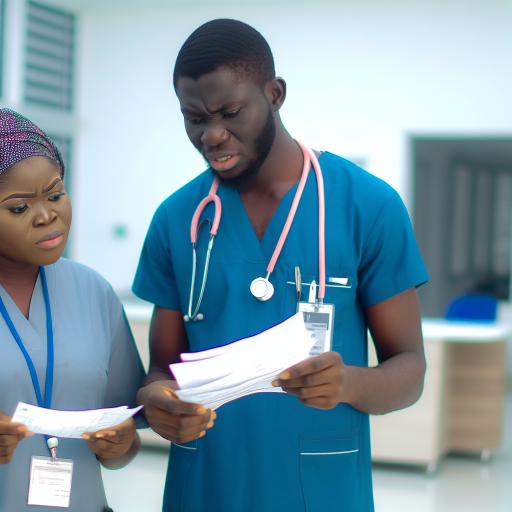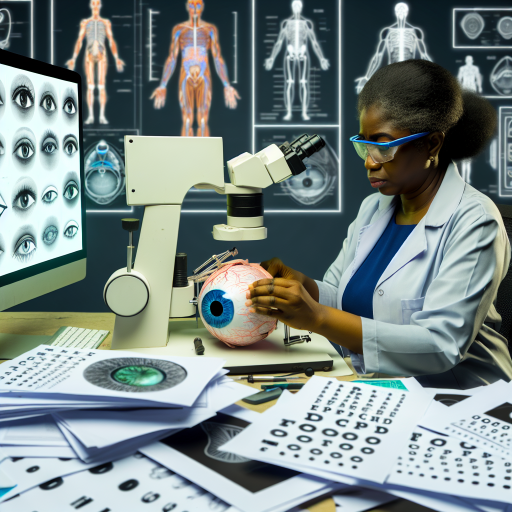Introduction:
In Nigeria, prosthetics play a crucial role in improving the quality of life for individuals with limb deficiencies.
Patient experiences with prosthetics are invaluable as they provide insight into the effectiveness and usability of these devices.
Understanding the challenges and successes that patients encounter when using prosthetics can help healthcare professionals and manufacturers tailor their products and services to meet the unique needs of Nigerian patients.
This blog post aims to shed light on patient experiences with prosthetics in Nigeria, highlighting the obstacles they face, the solutions that have worked for them, and the importance of continuous improvement in prosthetic technology and services.
Lack of access to quality prosthetics
Many patients in Nigeria struggle to access high-quality prosthetic devices that are essential for their mobility and functionality.
The limited availability of these devices further exacerbates their physical limitations and impedes their overall well-being.
High cost of prosthetic devices
The exorbitant cost of prosthetic devices poses a major financial burden on patients in Nigeria.
Most individuals cannot afford these devices, leading to a lack of access to essential mobility aids that are crucial for their daily activities and independence.
Limited specialized healthcare facilities
Nigeria suffers from a shortage of specialized healthcare facilities that can cater to the unique needs of patients requiring prosthetic care.
This lack of infrastructure hinders patients from receiving proper and timely treatment, further complicating their rehabilitation process.
Cultural beliefs and stigma surrounding prosthetics
Patients with prosthetics in Nigeria often face cultural beliefs and stigma that contribute to their social exclusion and marginalization.
These negative perceptions make it challenging for individuals to seek support and acceptance within their communities, leading to feelings of isolation and discrimination.
Addressing the challenges for patients
Patients with prosthetics in Nigeria encounter a myriad of challenges that impact their experiences and overall well-being.
Addressing these issues requires a multi-faceted approach, including improving access to quality prosthetic devices, reducing costs, expanding specialized healthcare facilities, and promoting cultural acceptance and inclusivity.
Patient Stories:
- Interview with individuals who have received prosthetics in Nigeria
- Sharing personal experiences, struggles, and triumphs
- Impact of prosthetics on their daily lives and mobility
- Highlighting the resilience and determination of patients
Prosthetics have significantly transformed the lives of many individuals in Nigeria.
Through personal interviews with patients who have used prosthetics, we have gained valuable insights into their experiences, struggles, and triumphs.
Interview with Patients:
One patient, Ade, shared his journey of losing his leg in a motorcycle accident and how receiving a prosthetic limb changed his life. “I thought my life was over, but with the prosthetic, I am now able to walk again,” he said.
Another patient, Fatima, talked about the challenges she faced as a young amputee and how prosthetics enabled her to regain her mobility. “I can now run and play with my friends, just like before,” she expressed with joy.
Impact on Daily Lives:
Patients highlighted the significant impact prosthetics have had on their daily lives.
From being able to perform daily activities independently to regaining their confidence and self-esteem, prosthetics have truly been life-changing.
John, a young man who lost his arm in a work-related accident, shared, “My prosthetic arm has allowed me to continue working and providing for my family. It has given me a sense of purpose and independence.”
Resilience and Determination:
Patients’ stories also shed light on their remarkable resilience and determination in overcoming adversity.
Despite facing challenges, they have demonstrated incredible strength and perseverance in adapting to their new reality with prosthetics.
Olamide, a university student who lost both legs in a tragic accident, stated, “At first, I was devastated, but with the support of my family and the right prosthetic limbs, I am now able to pursue my education and dreams.”
Gain More Insights: Community Impact of Biomedical Technology Nigeria
Healthcare System:
In Nigeria, the healthcare system faces numerous challenges.
Lack of infrastructure and resources is significant.
Accessibility to quality healthcare services is a major issue.
This is especially true in rural areas.
Overview of the healthcare system in Nigeria:
- Nigeria operates a mixed healthcare system.
- The public healthcare system is inadequate.
- Disparities exist in healthcare provision.
Availability of prosthetic services and support:
- Prosthetic services in Nigeria are limited.
- Access to these services is challenging.
- Cost is a significant barrier for many.
Government policies and initiatives to improve access to prosthetics:
- The Nigerian government has made efforts to improve access.
- There are initiatives to provide subsidies for prosthetics.
- Further actions are needed for accessibility.
Collaboration with non-profit organizations and international partners:
- Non-profits provide crucial services to underserved populations.
- International partners offer resources and expertise.
- Collaboration is essential to improve access.
The healthcare system in Nigeria faces challenges.
Providing prosthetic services and support is difficult.
Collaboration between stakeholders is crucial.
This will improve access and affordability of prosthetics.
Delve into the Subject: Understanding Blood Disorders Common in Nigeria
Improving Patient Experiences:
- Importance of patient education and counseling
- Access to multidisciplinary healthcare teams
- Adoption of innovative technology in prosthetics
- Empowering patients to participate in their care and decision-making
Importance of Patient Education and Counseling
Patient education and counseling play a crucial role in enhancing the overall experience of individuals using prosthetics in Nigeria.
Lack of awareness and understanding about prosthetics can lead to misconceptions, fears, and discomfort among patients.
Therefore, healthcare providers should prioritize educating patients about the benefits, limitations, and maintenance of prosthetic devices.
Clear communication and guidance can help patients feel empowered and confident in utilizing their prosthetics effectively.
Access to Multidisciplinary Healthcare Teams
Collaboration among healthcare professionals from various disciplines is essential in providing comprehensive care for patients with prosthetics.
This multidisciplinary approach ensures that individuals receive holistic support, including physical therapy, occupational therapy, and psychological counseling.
Transform Your Career with Expert Guidance
Get personalized mentorship consulting that’s tailored to your unique path. Our expert advice is actionable and exclusive.
Get StartedBy working together, medical professionals can address the diverse needs of patients and tailor treatment plans that optimize their functional outcomes.
Adoption of Innovative Technology in Prosthetics
The incorporation of cutting-edge technology in prosthetic devices can significantly enhance the mobility and quality of life for patients in Nigeria.
Advancements such as robotic limbs, sensor technology, and 3D printing offer customized solutions that improve comfort, functionality, and aesthetics.
By embracing innovative prosthetic technologies, healthcare providers can better meet the unique needs and preferences of individual patients, ultimately enhancing their overall experience.
Empowering Patients to Participate in Their Care and Decision-Making
Empowering patients to actively engage in their care and decision-making processes is fundamental to promoting their well-being and satisfaction with prosthetic treatment.
By involving individuals in setting goals, discussing treatment options, and exploring rehabilitation strategies, healthcare providers can foster a sense of autonomy and ownership over their healthcare journey.
Empowered patients are more likely to adhere to treatment plans, communicate their concerns effectively, and achieve positive outcomes with their prosthetics.
See Related Content: Overview of Veterinary Regulations in Nigeria

Case Studies:
John, a farmer in rural Nigeria, lost his leg in a farming accident.
With a prosthetic leg, he was able to resume his work and support his family.
Mary, a young student, lost her arm in a car accident.
Through a rehabilitation program, she learned to use a prosthetic arm effectively.
This enabled her to excel in her studies.
Rehabilitation Programs and Support Services:
Government hospitals in Nigeria provide rehabilitation programs for patients fitted with prosthetics.
These programs include physiotherapy, counseling, and vocational training.
Non-profit organizations such as Prosthetics for Hope offer support services for prosthetic users.
They provide free maintenance, repairs, and access to prosthetic workshops.
Impact of Community Involvement and Advocacy:
Community support plays a crucial role in the successful integration of prosthetic users.
Advocacy campaigns raise awareness and promote inclusivity for patients with prosthetics.
Local initiatives, such as support groups for amputees, create a network of individuals.
These groups allow members to share experiences and provide emotional support to each other.
Lessons Learned and Best Practices for Improving Patient Outcomes:
Education and training on proper prosthetic use are essential for patient success.
Regular follow-ups with prosthetists ensure that adjustments are made for optimal comfort and function.
Collaboration between healthcare providers, government agencies, and NGOs is key.
This multidisciplinary approach leads to better outcomes for patients.
See Related Content: Innovative Mental Health Programs in Nigeria
Patient Experiences with Prosthetics in Nigeria
Patient experiences with prosthetics have been varied and challenging in Nigeria.
It is essential to improve prosthetic care and accessibility in the country.
Patients are urged to share their stories and advocate for better healthcare services.
Raising awareness and promoting inclusivity for individuals with prosthetics is crucial in Nigeria.
- Recap of key points
- Call to action
- Encouragement
- Importance of awareness




